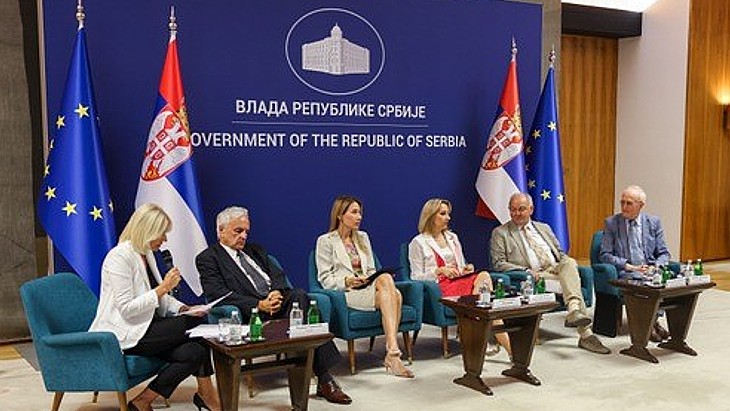Minister Đedović Handanović posted on social media after the vote, which also endorsed the energy strategy to 2040, "history was written today", calling it a "very important day for energy in the Republic of Serbia".
The Serbian Radiation and Nuclear Safety and Security Directorate said the prohibition law "was adopted in former Socialist Federal Republic of Yugoslavia 1989, three years after the Chernobyl disaster in former Soviet Union ... the issue of nuclear energy use was brought into focus after the first Nuclear Energy Summit in Brussels held in March this year. In the Declaration on Nuclear Energy, which was signed during the summit, nuclear energy is marked as a key component in the global strategy for the reduction of the greenhouse effect".
At that event, Serbia's President Aleksandar Vučić said the country was seeking support from other countries in terms of know-how and financing to achieve its aim of getting 1200 MW of capacity from small modular reactors.
Then in July, the Minister of Mining and Energy and representatives of five other ministries and from 20 academic faculties, scientific institutes and energy companies signed a memorandum of understanding on the development of nuclear energy in Serbia. The event was attended by Serbian Prime Minister Miloš Vučević, who said the MoU corrected "the mistake" in the 1980s which banned nuclear energy.
In October France's EDF and French engineering consultancy Egis were awarded a contract by Serbia's Ministry of Mining & Energy to conduct a preliminary technical study on the potential use of nuclear power in the country, and the country has also held talks with Russia's Rosatom about non-energy applications of nuclear technologies. Serbia's president has also discussed the option of Serbia acquiring 5 to 10% of Hungary's Paks nuclear power plant.
The lifting of the ban on nuclear energy in Serbia does not necessarily mean the country will take a decision to build nuclear energy plants, but the vote to lift the ban means that the feasibility studies currently being carried out will help inform a possible decision to do so.
The Serbian Energy Strategy to 2040 with an outlook to 2050 includes the potential use of nuclear energy after 2040 as part of climate change commitments and says: "From the point of view of the basic development goals and priorities of energy development, nuclear energy could significantly contribute to decarbonisation and increase the competitiveness of the energy sector. Nuclear energy is a clean energy source from the point of view of the emission of gases with the greenhouse effect and local pollutants, and it also enables the diversification of the electricity production structure at a reasonable price - high capital expenditures are compensated by low variable production costs in the long term."





_87299.jpg)
_52351.jpg)








